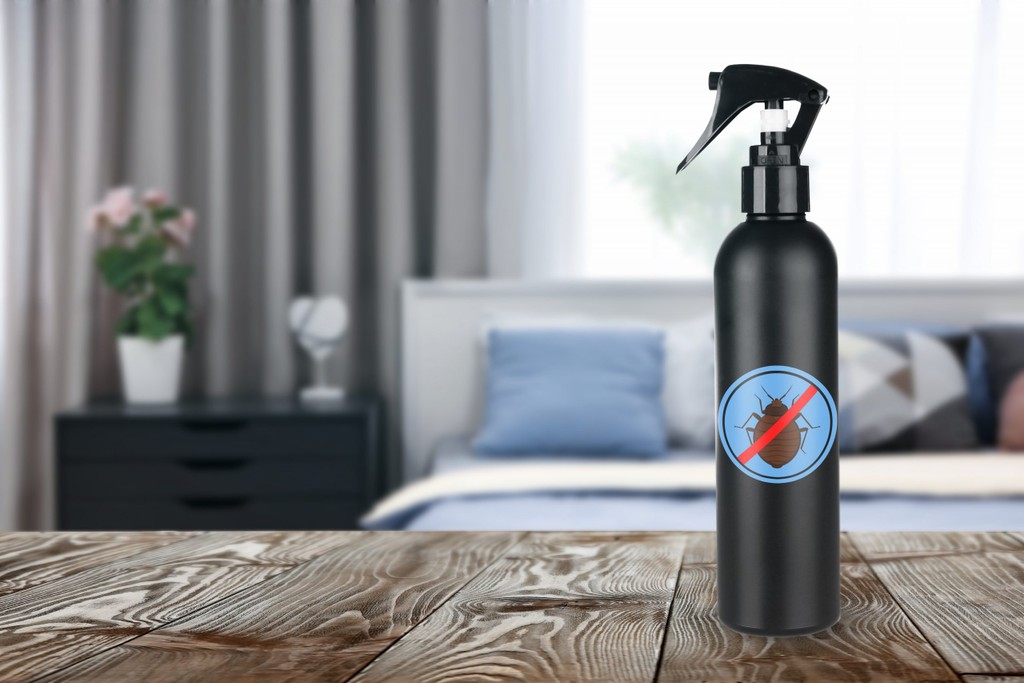These methods employ every possible technique under the sun to control the bedbug infestation. Most bedbug control methods are lengthy, laborious, time-consuming, and expensive. Even worse, the effectiveness of some ways could be better. You must use a bedbug control method representing the most value for your invested money, energy, and time.
This post walks you through the 11 Money-wasting bed bug control methods you should avoid for better results.
Table of Contents
Switching sleeping locations
Switching sleeping locations will do you more harm than good. You might think you are dodging bedbugs but are moving them to your next bedroom. Bedbugs are perfect hitchhikers that hide in your clothing, belongings, and bedding.
Switching sleeping locations is one of the main mistakes when dealing with bed bugs, even though it will provide temporary comfort till morning. However, on the contrary, you will be spreading bedbugs to all your sleeping locations, complicating infestation in the long term.
It is essential to understand that switching sleeping locations does not exterminate bedbugs. The bedbugs will remain in your bedroom and wait till you come back. You will waste money purchasing new bedding and switching to new sleeping locations. Concentrate on treating the bedbugs.
Ultrasonic pest repeller
Ultrasonic pest repellers for bed bugs are electronic devices that produce high-pitched sounds at a frequency that can hinder discomfort and drive away household pests. These sound devices are marketed as easy-to-use deterrents to bedbugs compared to other bedbugs control methods.
Be aware of their marketing tricks and proclaimed effectiveness in controlling bedbugs infestations. They claim that the sound produced at a frequency ranging from 20kHz to 60kHz irritates bedbugs driving them away. It does not harm other animals, such as pets and human beings, since it is inaudible to them.
The effectiveness of Ultrasonic sound devices against bedbugs is low. Bedbugs communicate via pheromones, and highly pitched sound frequencies will fall on bedbugs’ deaf ears. You will be wasting your money purchasing these devices since it does not deter bedbugs.
Essential oil repellents
Essential oil repellents are liquid extracts from plants with strong scents that deter bedbugs at your home. Some essential oils have botanical elements that destroy the bedbug’s nervous systems and exterminate them.
You must understand that essential oils are effective against bed bugs but only when combined with other treatments, such as heat. Essential oils scents only deter bedbugs but do not kill them. This bedbug control will work if supported by other methods that will exterminate the pesky bugs. Using this approach is insufficient since the influence of the essential oils over the bedbug diminishes over time before the bedbugs give up the ghost.
The practical application of critical oil repellents is also questionable. A study in the journal of Economic Entomology showed that essential oil effectively deters bedbugs but also failed to kill bedbugs within 24 hours. Before spraying them into affected areas, mix the essential oil with rubbing alcohol and distilled water. This is challenging since bedbugs are good at hiding, and you might need help to spot their hideouts.
You will be wasting your money buying essential oil repellents since their effectiveness in exterminating bedbugs needs to be higher.
Dryer sheets
If you have been looking for easier ways to control bedbugs, you might have encountered a dryer sheet. Dryer sheets are made of liquid softeners and lubricants and have a layer coated with fragrances. They are used in laundry to soften clothes by reducing the static and depositing scents.
Stop wasting your money purchasing dryer sheets. Placing dryer sheets below your bedding, sofas, furniture, and other hotspots is helpful, but there is no scientific proof that dryer sheets deter bugs. The working ideology is that the scent from the dryer sheet will deter bedbugs from their hiding spots.
Mothballs
Mothballs are tiny chemical pesticides and deodorants used to store clothes that moths, larvae, and molds can damage. The moth balls are made of naphthalene, an aromatic hydrocarbon that is highly flammable and gives it its robust, spicy, sickly-sweet scent. For safety measures, you must wear clothing must be sealed inside airtight polythene.
Moth balls do not control bed bugs. You can try many do-it-yourself bedbug control methods at home. Placing moth balls below your bed, clothing, furniture, and other places will not exterminate bedbugs. Mothballs are dangerous if ingested.
Rubbing Alcohol
Rubbing alcohol is a bedbug control technique that many people have practiced at their homes. It is a reasonably simple method in which alcohol is sprayed at the bedbug and its hideout. Alcohol corrodes bedbugs’ exoskeletons dying their bodies to death, and dries out their eggs, preventing them from hatching.
It looks easy, right? No, this method is impracticable, considering that bedbugs are fiendishly good at hiding. Chances are that your alcohol will fail to have direct contact with the bedbug. Remember, alcohol is only lethal on direct contact.
You will be wasting your hard-earned money trying to eradicate bedbugs with alcohol. Research by Rutgers University showed that alcohol products have varied isopropyl alcohol concentrations from 50% to 91%. However, researchers noted that the products exterminated at most 50% of the bedbugs.
House cleaning sprays
These products were intended to perform household cleaning, eradicate bacteria and enhance overall hygiene. Bedbugs are difficult to treat; most believe cleaning detergents work best against bed bugs. No need to sugar-coat the sad news; cleaning detergents do not effectively exterminate bedbugs.
All soap-based detergents and sprays kill’ bedbugs on contact by damaging their exoskeleton. Popular cleaning detergents such as Tide, Persil ProClean, Clorox Disinfecting Wipes, Lysol All-Purpose Cleaner Spray, and Lysol All-Purpose Cleaner Spray serves well their intended cleaning purpose. It is unfeasible to use spray cleaning detergents on bedbugs. You will be wasting money relying on these cleaning products to exterminate bedbugs.
Most natural products
People have been quite creative while coming up with bedbugs extermination methods. Who would predict natural products doing the job for you? Most natural products, such as EcoRaider, comprise several botanical-based ingredients, including cedar wood, that can paralyze and kill bed bugs. These products serve as neuron blockers in invertebrates.
A USDA study showed that natural products exterminate bedbugs more safely than professional pesticides. However, it has a lower efficacy.
You will likely lose your money using natural products to get rid of bedbugs at your home. You will need to thoroughly and extensively research how best to kill bedbugs. More so, products such as EcoRaider take up to two weeks to exterminate the bugs.
Pyrethroid sprays
Most household insecticides are derived from the Pyrethroid family. A Pyrethroid is an insecticide that has been consistently used to treat insects. However, due to the prolonged usage of insecticides, bedbugs have developed resistance to them. It would be wasteful for you to use a Pyrethroid spray against bedbugs. To increase its effectiveness, you can mix it with other types of insecticide that work against bedbugs.
Foggers
You must administer most bed bug foggers correctly and directly at the bedbug or in its hideouts. No magic spray kills bedbugs instantaneously. Foggers, also known as Bug bombs, are insecticides sprayed at bedbugs. However, Foggers aerosols are ineffective since they do not penetrate crevices and voids that the bedbugs hide. It would be wasteful to purchase Foggers to control bedbugs.
Bedbugs disgust aerosols residue and may shift their location into other areas within your apartment. It would be best to avoid Foggers since they are highly flammable and it scatters insecticides through your room, posing health risks.
Detergents
You must be wondering if detergents can kill bedbugs, right? The good news is that detergents kill bedbugs. Even better, any detergent can do it despite its price. All detergents and soaps related products kill bedbugs by damaging their exoskeletons and exposing their internal bodies. The bed bugs will dehydrate and die. However, the practicality and effectiveness of this control method are based on contact.
You will not likely find bedbugs roaming around as they stay in their hideouts. You will be losing your money using detergents to control bedbugs.
Final Thoughts
Deciding on a suitable bedbug-treating option is challenging since various products and applications exist. Even worse, all these control products and techniques promise the best results. You will only save your money with adequate knowledge of their practicality, risks, usability, and effectiveness in treating bedbugs. All these methods have varied efficiency against bedbugs, and it would be best if you choose the most suitable. However, protect your bankroll by investing in Bedbug control methods that can effectively exterminate bedbugs. Avoid those listed in this post.
FAQs
Can you get rid of bed bugs without spending money?
Yes. You can use several do-it-yourself bedbug control methods, such as heat treatment and vacuum cleaning.
How much does bed bug treatment cost?
The cost of treating bedbugs depends on the infestation level and the chosen control method. You can find bedbug treatment costs starting from 300$.
Which insecticide spray should you use against bed bugs?
Insecticides are ineffective while treating bedbugs. Instead, choose a non-chemical treatment option

